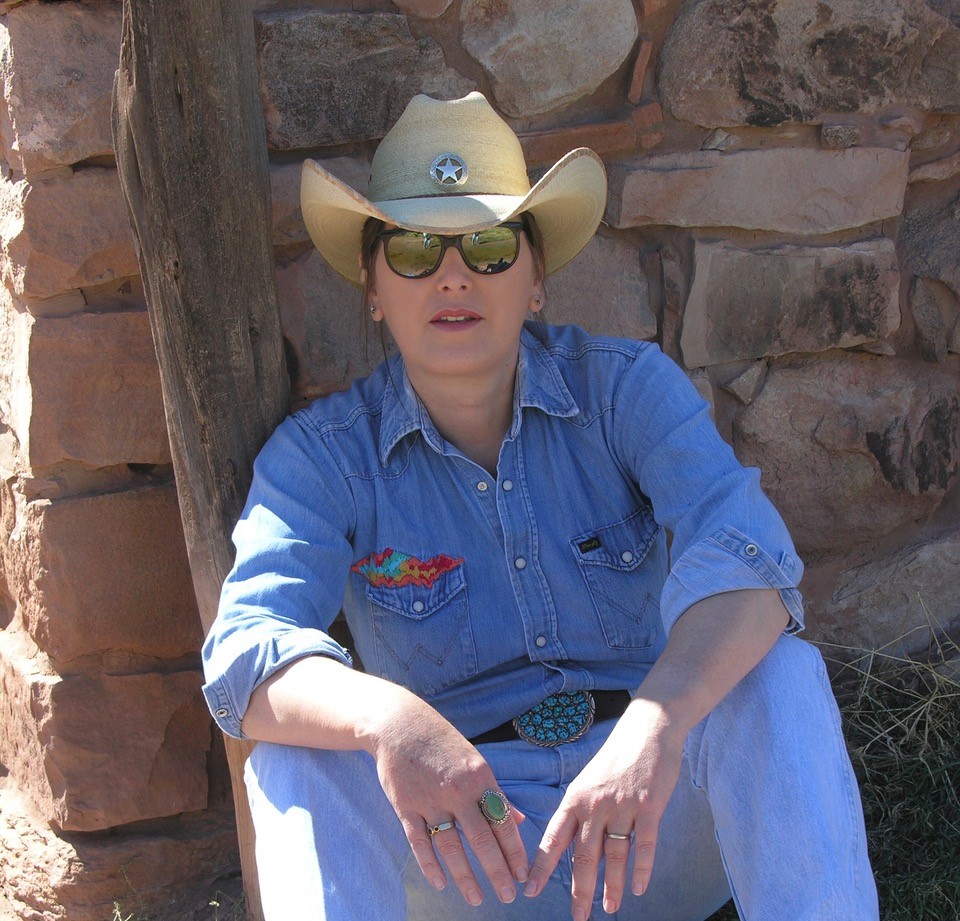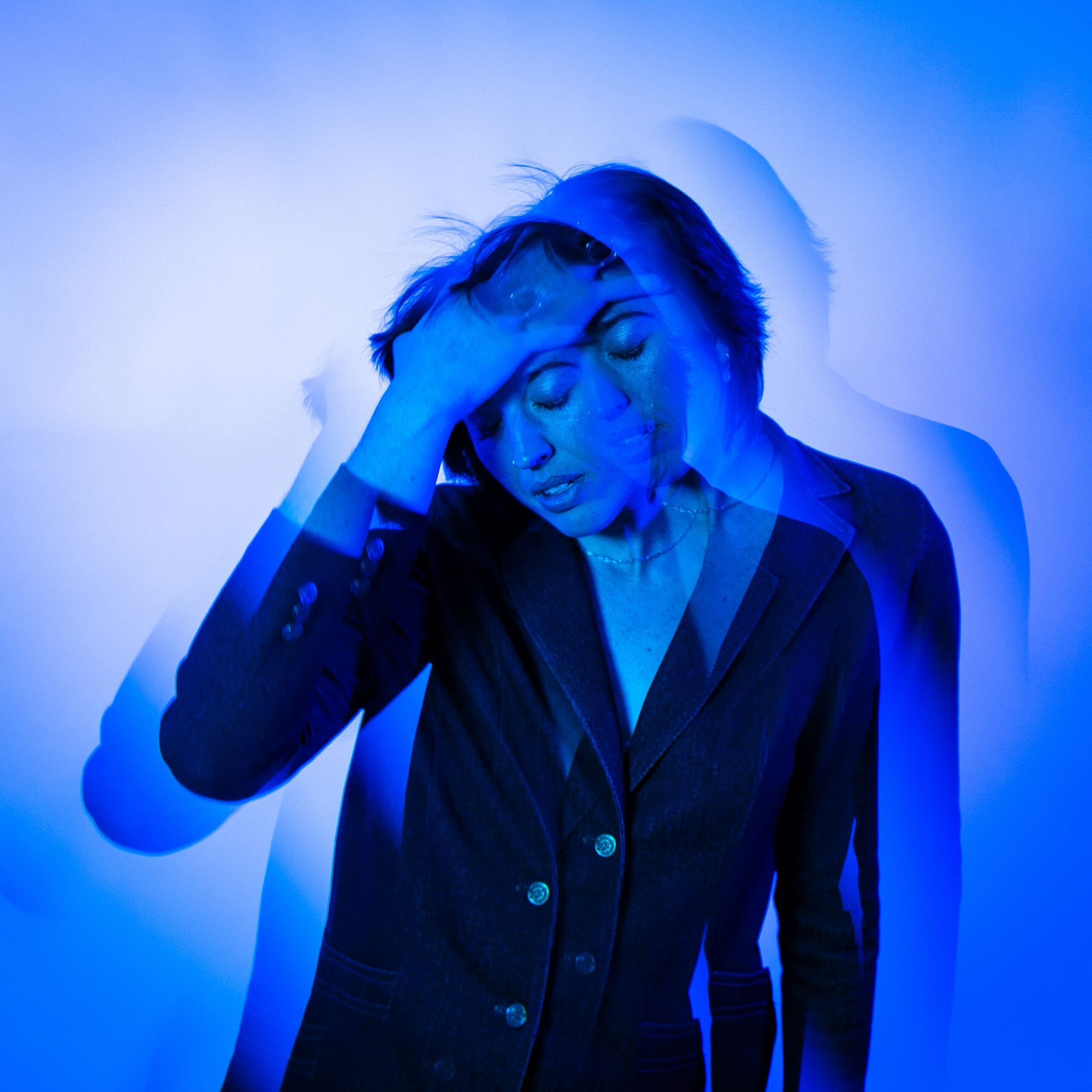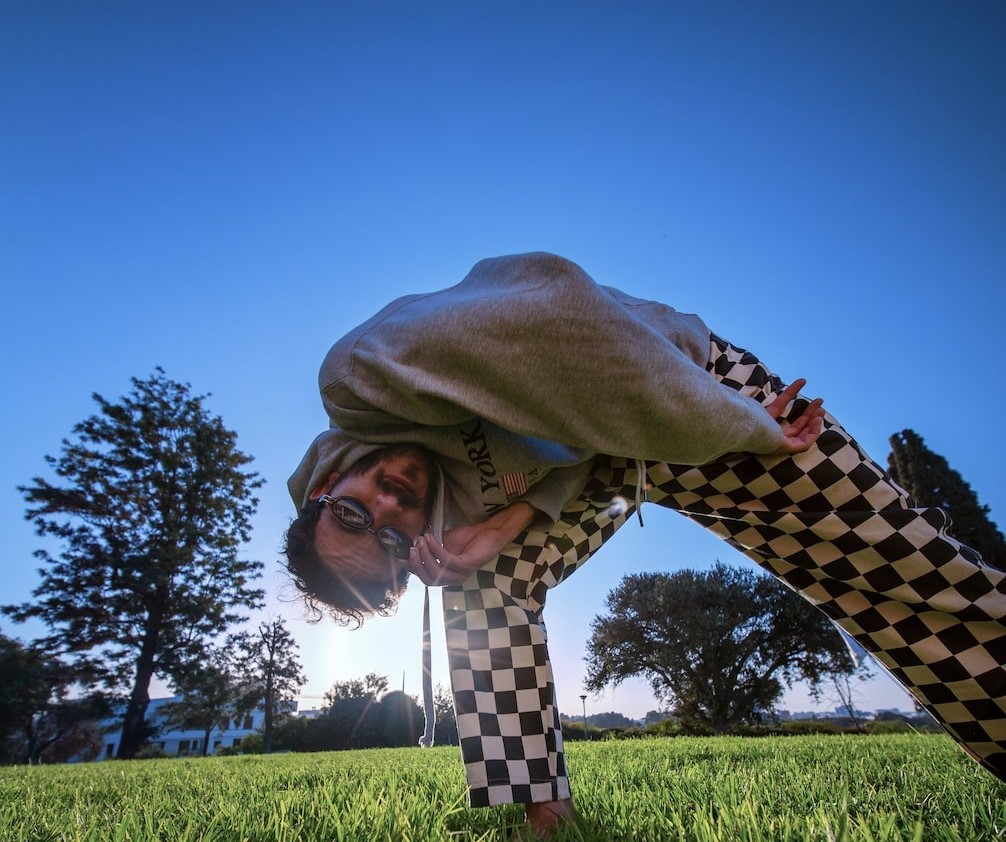Second Hand – “Death May Be Your Santa Claus” (1971) review
Second Hand – Death May Be Your Santa Claus (1971)
(Esoteric/Cherry Red ECLEC
2594; 44.19 minutes)
2594; 44.19 minutes)
Just released by
Esoteric/Cherry Red, hot on the heels of their excellent Mushroom Story, is the ultra-rare second album by Second Hand, the
studio band of Vic Keary’s eclectic Mushroom Records. With three equally rare
bonus tracks, 24-bit remastering and well-illustrated booklet, this is a
welcome issue for all interested in the origins of progressive rock.
Esoteric/Cherry Red, hot on the heels of their excellent Mushroom Story, is the ultra-rare second album by Second Hand, the
studio band of Vic Keary’s eclectic Mushroom Records. With three equally rare
bonus tracks, 24-bit remastering and well-illustrated booklet, this is a
welcome issue for all interested in the origins of progressive rock.
Second Hand started out as The Next
Collection in South London in 1965. Teenage school-friends
Ken Elliott (keyboards including mellotron; harmonica) and Kieran O’Connor
(drums; vibes), recruited Bob Gibbons (guitar) and later Arthur Kitchener
(bass) that won a battle of the bands at Streatham Ice Rink. The prize was a
demo recording at Maximum Sound Studio, and the two songs (A Fairy Tale, Steam
Tugs released as bonus tracks in 2007) were considered good as masters by the
producer Vic Keary, who soon became their unofficial manager.
Collection in South London in 1965. Teenage school-friends
Ken Elliott (keyboards including mellotron; harmonica) and Kieran O’Connor
(drums; vibes), recruited Bob Gibbons (guitar) and later Arthur Kitchener
(bass) that won a battle of the bands at Streatham Ice Rink. The prize was a
demo recording at Maximum Sound Studio, and the two songs (A Fairy Tale, Steam
Tugs released as bonus tracks in 2007) were considered good as masters by the
producer Vic Keary, who soon became their unofficial manager.
He got them signed to Polydor where they
recorded the cult LP Reality released
at the end of 1968, with guest Chris Williams on cello, flute and saxophone. Mid-session
they changed their name to Second Hand—because such were their instruments—while
Kitchener also
left, replaced for half the album by Nick South after an advert in Melody Maker. There was no help from
Polydor: no press, airplay or supporting single. Keary says the initial
enthusiastic A&R rep had been replaced so the band was left high and dry to
sink or swim. They toured Europe garnering fans in France,
Holland, Spain
and Germany.
While there Bob Gibbons suffered family bereavement and returned home, but sadly
never recovered before his tragic suicide in 1977.
recorded the cult LP Reality released
at the end of 1968, with guest Chris Williams on cello, flute and saxophone. Mid-session
they changed their name to Second Hand—because such were their instruments—while
Kitchener also
left, replaced for half the album by Nick South after an advert in Melody Maker. There was no help from
Polydor: no press, airplay or supporting single. Keary says the initial
enthusiastic A&R rep had been replaced so the band was left high and dry to
sink or swim. They toured Europe garnering fans in France,
Holland, Spain
and Germany.
While there Bob Gibbons suffered family bereavement and returned home, but sadly
never recovered before his tragic suicide in 1977.
Upset by the absence of their
founder-member, the guitarist was never replaced. A little later, Vic Keary
established Chalk Farm Studios in premises adjacent to a pub that once housed
the studio where Cream recorded their first tracks as had several beat bands
and Manfred Mann. In 1970, Second Hand recorded Death May Be Your Santa Claus that was partly the soundtrack for an
art-film of the same name by Frankie Dymon (who worked on a Rolling Stones’
cinema project) but it was banned. Ken Elliott’s sister Fran, however, recently
found a copy still surviving in the BFI’s library according to an interview in Italy.
founder-member, the guitarist was never replaced. A little later, Vic Keary
established Chalk Farm Studios in premises adjacent to a pub that once housed
the studio where Cream recorded their first tracks as had several beat bands
and Manfred Mann. In 1970, Second Hand recorded Death May Be Your Santa Claus that was partly the soundtrack for an
art-film of the same name by Frankie Dymon (who worked on a Rolling Stones’
cinema project) but it was banned. Ken Elliott’s sister Fran, however, recently
found a copy still surviving in the BFI’s library according to an interview in Italy.
For this new album, George Hart (bass;
violin; vocals) replaced Nick South and Ken’s brother Rob (influenced by Arthur
Brown/Zappa/ Beefheart) took over on lead vocals, the guitar parts added by
sessionmen Moggy Mead and Tony McGill (who was also given the thankless task of
accountant for the band). It was finally released on Keary’s new Mushroom
label’s first day, April 1st 1971, along with others including Ravi
Shankar and Simon Finn. Funeral b/w Hangin’ On An Eyelid were later released as
a single, the a-side (a bonus here) initially earmarked for stable-mates
Andromeda but became the only non-band song Second Hand recorded.
violin; vocals) replaced Nick South and Ken’s brother Rob (influenced by Arthur
Brown/Zappa/ Beefheart) took over on lead vocals, the guitar parts added by
sessionmen Moggy Mead and Tony McGill (who was also given the thankless task of
accountant for the band). It was finally released on Keary’s new Mushroom
label’s first day, April 1st 1971, along with others including Ravi
Shankar and Simon Finn. Funeral b/w Hangin’ On An Eyelid were later released as
a single, the a-side (a bonus here) initially earmarked for stable-mates
Andromeda but became the only non-band song Second Hand recorded.
They appear on several LPs from the label
as the in-house band; indeed Kieran O’Connor coined the label’s name. After the
Polydor let-down, the band preferred to be linked with the underground where
they enjoyed full artistic control. Mushroom’s location opposite the Chalk Farm
Roundhouse venue was a counter-culture nexus—just along the road where Camden as we know it
today first began. The writing and recording flowed quickly (“It was like a
bomb going off” recalled Elliott), the mixing took longer with the prog-electronic
effects sparked by the new studio being built and arranged around them. As with
contemporary teenagers like Clear Blue Sky and Incredible Hog, the availability
of new technology created the gravitas of early symphonic-sounding rock.
as the in-house band; indeed Kieran O’Connor coined the label’s name. After the
Polydor let-down, the band preferred to be linked with the underground where
they enjoyed full artistic control. Mushroom’s location opposite the Chalk Farm
Roundhouse venue was a counter-culture nexus—just along the road where Camden as we know it
today first began. The writing and recording flowed quickly (“It was like a
bomb going off” recalled Elliott), the mixing took longer with the prog-electronic
effects sparked by the new studio being built and arranged around them. As with
contemporary teenagers like Clear Blue Sky and Incredible Hog, the availability
of new technology created the gravitas of early symphonic-sounding rock.
Nine tracks (the title song expanded as a
majestic end reprise) lead with organ, Arthur Brown-style earthy vocals, vibes,
fuzzed bass and staccato Egg-like rhythm, leading into the
French-cinematic-like Hangin’ On An Eyelid with its different keys and jazzish
bass for a pulsing beat. Drum-roll and organ open the near eight-minute Lucifer
And The Egg with vocals typically in different registers underpinned by
always-inventive percussion and sometimes-fuzzed bass alongside some trippy
electronics. This builds into the almost-frenetic Somethin’ You Got then slowed
by the atmospheric church-like organ of Cyclops, based on a Bach theme with
some intriguing codas, a throbbing piece of gristle. Choral harmonies,
including reverse-looped, are ended after a minute with an apocalyptic explosion
(Sir Transit Gloria Mundi) for Revelations (Chapter 16 verses 9-21), a
doom-laden exploration over faint violin. Take To The Skies sounds vaguely like
Kingdom Come’s Galactic Zoo Dossier or Khan sans Steve Hillage, if that can be
imagined.
majestic end reprise) lead with organ, Arthur Brown-style earthy vocals, vibes,
fuzzed bass and staccato Egg-like rhythm, leading into the
French-cinematic-like Hangin’ On An Eyelid with its different keys and jazzish
bass for a pulsing beat. Drum-roll and organ open the near eight-minute Lucifer
And The Egg with vocals typically in different registers underpinned by
always-inventive percussion and sometimes-fuzzed bass alongside some trippy
electronics. This builds into the almost-frenetic Somethin’ You Got then slowed
by the atmospheric church-like organ of Cyclops, based on a Bach theme with
some intriguing codas, a throbbing piece of gristle. Choral harmonies,
including reverse-looped, are ended after a minute with an apocalyptic explosion
(Sir Transit Gloria Mundi) for Revelations (Chapter 16 verses 9-21), a
doom-laden exploration over faint violin. Take To The Skies sounds vaguely like
Kingdom Come’s Galactic Zoo Dossier or Khan sans Steve Hillage, if that can be
imagined.
The Funeral single is late psych/early prog
in all its pomposity and drive with added strings. No information is supplied
about the other two bonus tracks: the short Dip It Out Of The Bog Fred may
feature Lol Coxhill on sax, while Baby RU Anudder Monster? is a zany bit of
freakdom, ripe for lovers of the quirkier end of the Canterbury scene, Gong or Quatermass with a
dash of krautrock. Some liken them to Atomic Rooster or Gentle Giant too. In
other words, so avant-garde it encompasses many styles for an album that is
like no other in its totality. As one recent reviewer put it, “adventurous and
innovative…it has to be heard to be believed”.
in all its pomposity and drive with added strings. No information is supplied
about the other two bonus tracks: the short Dip It Out Of The Bog Fred may
feature Lol Coxhill on sax, while Baby RU Anudder Monster? is a zany bit of
freakdom, ripe for lovers of the quirkier end of the Canterbury scene, Gong or Quatermass with a
dash of krautrock. Some liken them to Atomic Rooster or Gentle Giant too. In
other words, so avant-garde it encompasses many styles for an album that is
like no other in its totality. As one recent reviewer put it, “adventurous and
innovative…it has to be heard to be believed”.
They folded in early 1972 after recording
another Mushroom album as Chillum, basically a jam in keeping with the name
from the cannabis family. The principal songwriter Ken Elliott turned to
session work, e.g. for the Trojan label including Desmond Dekker, as had Keary
for many years, as well as film and T.V. music. Together with O’Connor he
formed Seventh Wave, which like Arthur Brown recorded for the short-lived Gull
Records around this time. O’Connor’s battle with alcoholism during Second
Hand’s span resulted in the drummer’s premature demise a few years later.
another Mushroom album as Chillum, basically a jam in keeping with the name
from the cannabis family. The principal songwriter Ken Elliott turned to
session work, e.g. for the Trojan label including Desmond Dekker, as had Keary
for many years, as well as film and T.V. music. Together with O’Connor he
formed Seventh Wave, which like Arthur Brown recorded for the short-lived Gull
Records around this time. O’Connor’s battle with alcoholism during Second
Hand’s span resulted in the drummer’s premature demise a few years later.
Ken Elliott was first influenced by jazz
rock, Procol Harum and The Nice, reflected in his friendships with Egg and
Colosseum. The band jammed with Steppenwolf, Alexis Korner attended gigs, Peter
Gabriel considered them for his backing band after Genesis, but Kieran failed
to appear at the rehearsal so the opportunity was lost. Elliott now sees the
album positively, as a kind of statement. It is that, not only of the band but
the environment and era. Always true to their musical vision while seeking to
be inventive points to why their obscurity is undeserved. Proto-prog or a new
take on where the embers of psych were blowing? Either way it is by turns dark
and incredibly stimulating, well-worth investigating for all who are interested
in the origins of the musical genres we have today.
rock, Procol Harum and The Nice, reflected in his friendships with Egg and
Colosseum. The band jammed with Steppenwolf, Alexis Korner attended gigs, Peter
Gabriel considered them for his backing band after Genesis, but Kieran failed
to appear at the rehearsal so the opportunity was lost. Elliott now sees the
album positively, as a kind of statement. It is that, not only of the band but
the environment and era. Always true to their musical vision while seeking to
be inventive points to why their obscurity is undeserved. Proto-prog or a new
take on where the embers of psych were blowing? Either way it is by turns dark
and incredibly stimulating, well-worth investigating for all who are interested
in the origins of the musical genres we have today.
– Brian R. Banks
© Copyright http://www.psychedelicbabymag.com/2017
Array





It's great stuff!
A forgotten masterpiece Nick Hamlyn